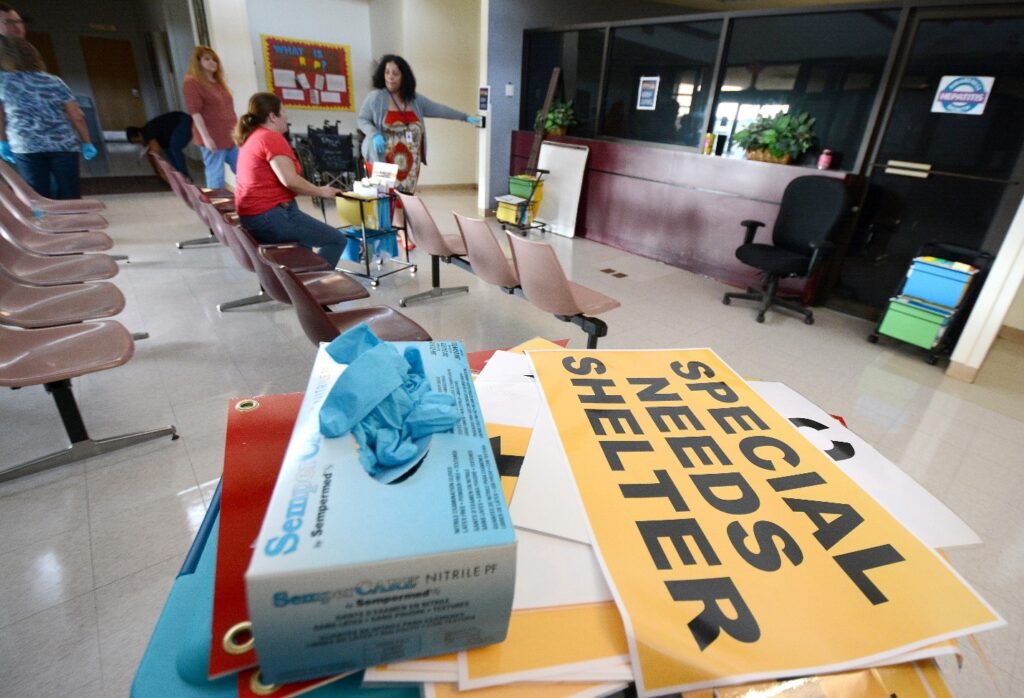Hurricane season is beginning in Florida. Whether you’re new to Central Florida or a seasoned Floridian, it’s crucial to be prepared for this hurricane season.
Now more than ever Polk County is home to people who have never experienced a hurricane. But you’ve come to the right place for information! We can help you learn everything you need to know to prepare for hurricane season in Florida from sandbags to shelters.
“Preparation is the key when it comes to hurricane season,” said Paul Womble, director of Polk County’s Emergency Management Division. “The season runs from June through November, although hurricanes can happen outside of that timeframe, and experts are predicting a very active season. That’s not a reason to panic, though. It’s a reason to prepare.”
What is Hurricane Preparation?
OK, let’s talk about hurricane preparation. Here are some things you can do to be ready:
- Make sure you have enough supplies for your household, including medications and pet food, in an emergency “go bag.” View a video about assembling a disaster supply kit here, and you can access a hurricane shopping list here.
- If someone in your household has a disability, identify if you need extra assistance in case of an emergency. For example, you may need assistance if you use medical supplies that require electricity. If necessary, reach out to officials by calling (863) 298-7027. You also can get more information by visiting Special Needs Emergency Management.
- Make sure your insurance policies and personal documents, e.g., driver licenses, are up-to-date. Make a list of your digital documents and save them on a USB drive or external hard drive. This will be useful during and after a tropical storm or hurricane. This list will help you start recovering quickly and efficiently if a disaster damages your home or important documents.
- Review your hurricane emergency plan with your family. Visit Florida Disaster Plan & Prepare for detailed planning information.
- Sign up for Polk County emergency warnings by visiting alertpolk.com.
Visit the Hurricane Preparedness page for more information about how to prepare.

But Polk County isn’t Near the Water!
We need to address a common Central Florida misconception. Contrary to popular belief, Polk County is not safe from hurricane damage simply because we are located inland. The dangers of hurricanes do not come just from coastal storm surges.
According to the National Weather Service, “flooding is the second-leading cause of fatalities from landfalling tropical cyclones.” Winds, meanwhile, can cause signs, roofing materials and other heavy debris to become flying missiles. The National Hurricane Center warns of the different hurricane hazards including heavy rainfall & inland flooding, high winds and tornadoes.
In 2004, three hurricanes – Charley, Jeanne and Francis – battered Polk County. Thanks to extreme rain, flooding and wind, 15 residents died and the storms caused an estimated $1.2 billion in damage to Polk County.
To reiterate, we are not safe just because we’re not in a coastal area. We don’t necessarily have to evacuate – Polk County typically takes a “shelter in place” approach unless officials advise otherwise – but we need to take preparation seriously. In particular, residents living in mobile homes or manufactured homes should pay close attention to updates from officials.
Hurricane Evacuation and Hurricane Shelters in Polk County
If you already have a seven-day survival kit put together, and you have a disaster plan in place, here are Polk County’s recommended hurricane evacuation options.
- Remain in your residence in an emergency, if possible.
- Evacuate to the home of friends or relatives.
- Evacuate the area. Leave 48-72 hours before the storm is expected to hit.
- Evacuate to a hotel/motel. Make arrangements early, as rooms will fill up.
- Evacuate to a public shelter. Visit a Publix Super Market to obtain a Polk County Public Shelter Map or find a public shelter online.
Not all public shelters are automatically activated for each emergency. They are opened as needed and are not pre-assigned by geographic area. Have your seven-day survival kit ready to take with you. Weapons and alcoholic beverages are not allowed in any public shelter.
During an emergency, please monitor Polk County’s website, social media and Polk County Government Television, as well as other local television and radio stations, for open shelter information.
It’s important to include pets in your family’s emergency plans. If you need to evacuate, your pets need to evacuate, too. Pets that are left behind are likely to end up lost, injured or worse. Visit the FAQs section at Polk County Emergency Management for more information.
What Do You Need to Know About Special Needs Shelters?
A special needs shelter is an emergency facility capable of providing special medical or nursing care which does not necessitate an acute care hospital setting. Eligible persons desiring special needs sheltering should preregister with Emergency Management. Although special needs shelters provide more care than a general shelter, they do not provide the level of care found in a medical facility.
Visit Special Needs Emergency Management for more information on special needs shelters.
For more information on prepping for disasters, visit Polk County Emergency Management or go to Polk County Emergency Management’s social media accounts:
- Facebook: PolkCountyEM
- Twitter: @PolkEmergency
